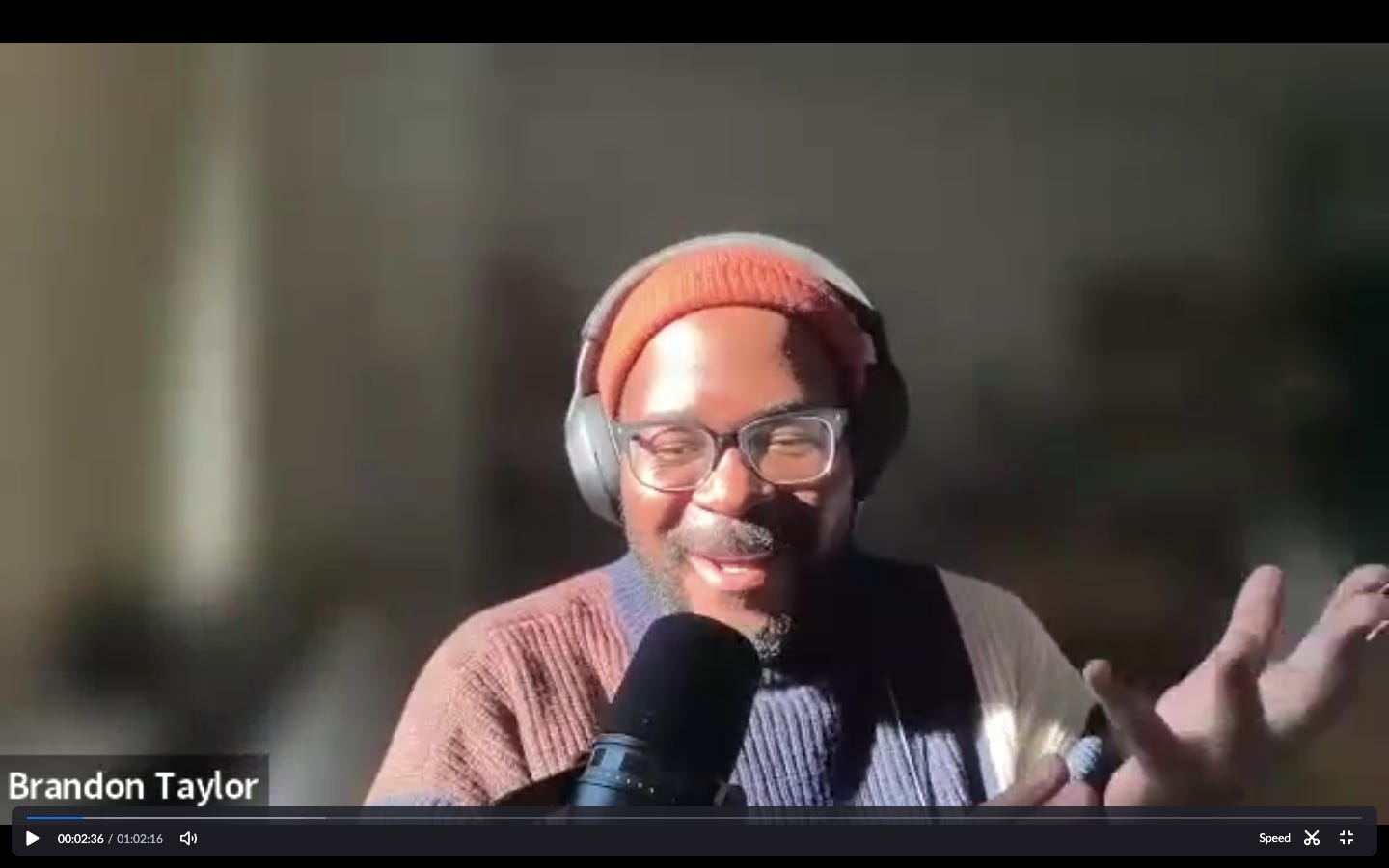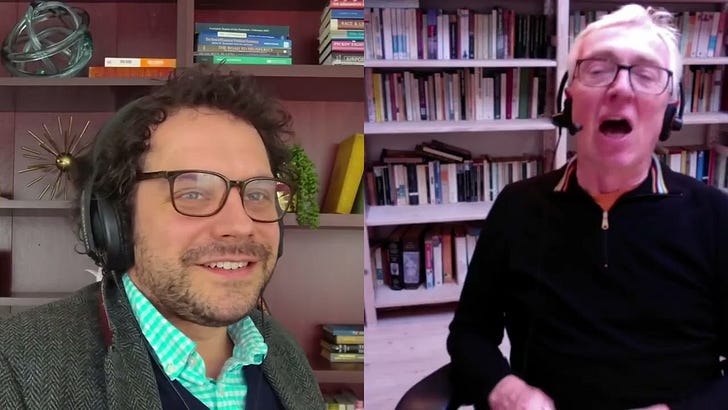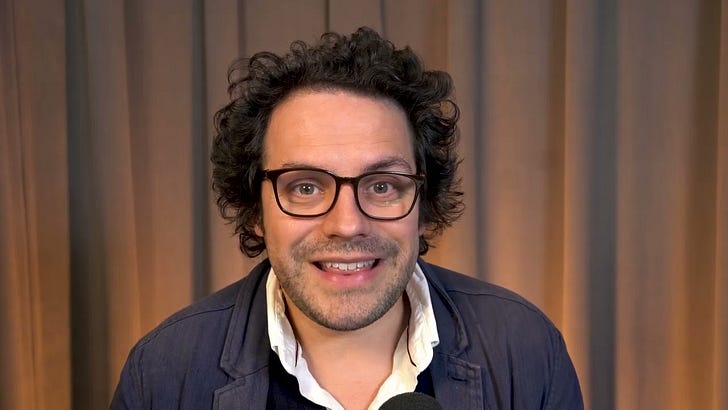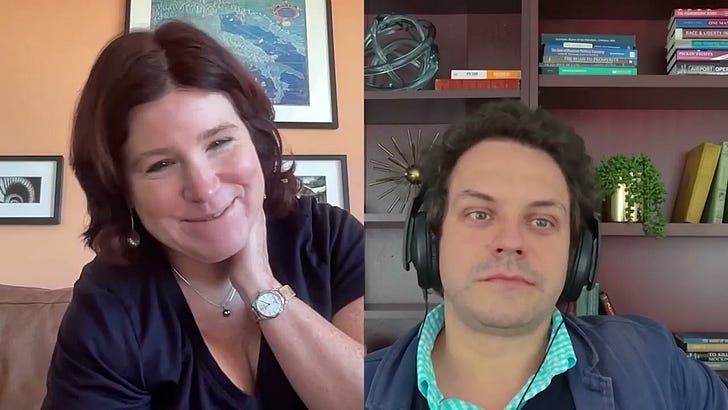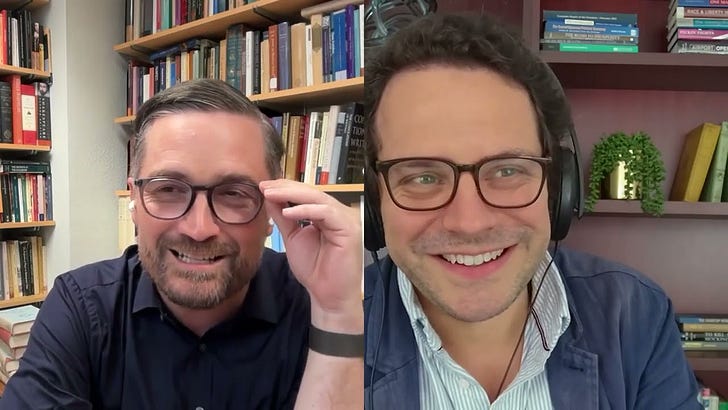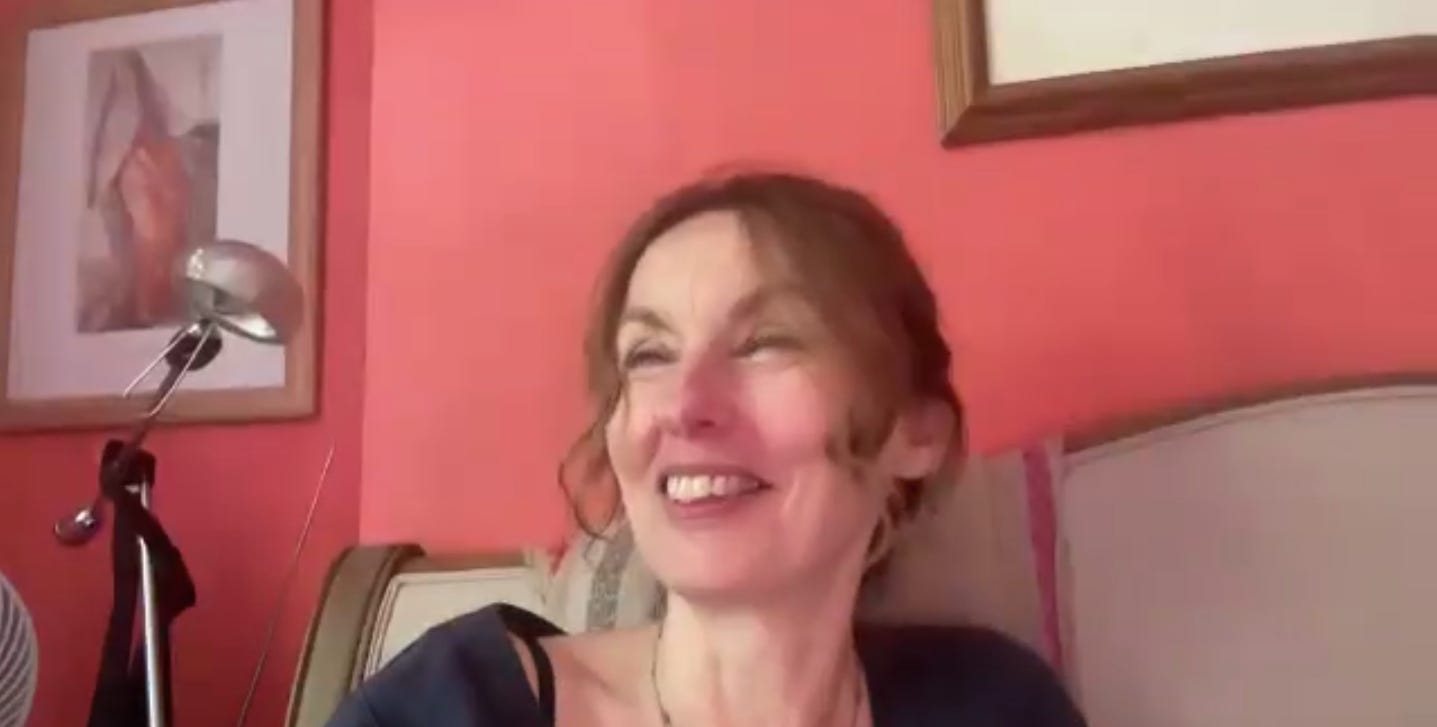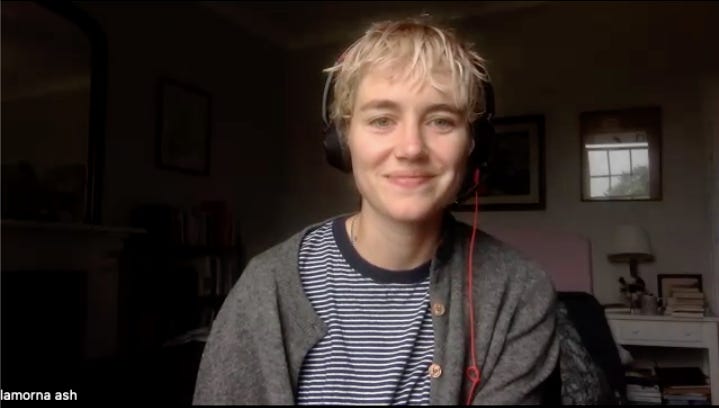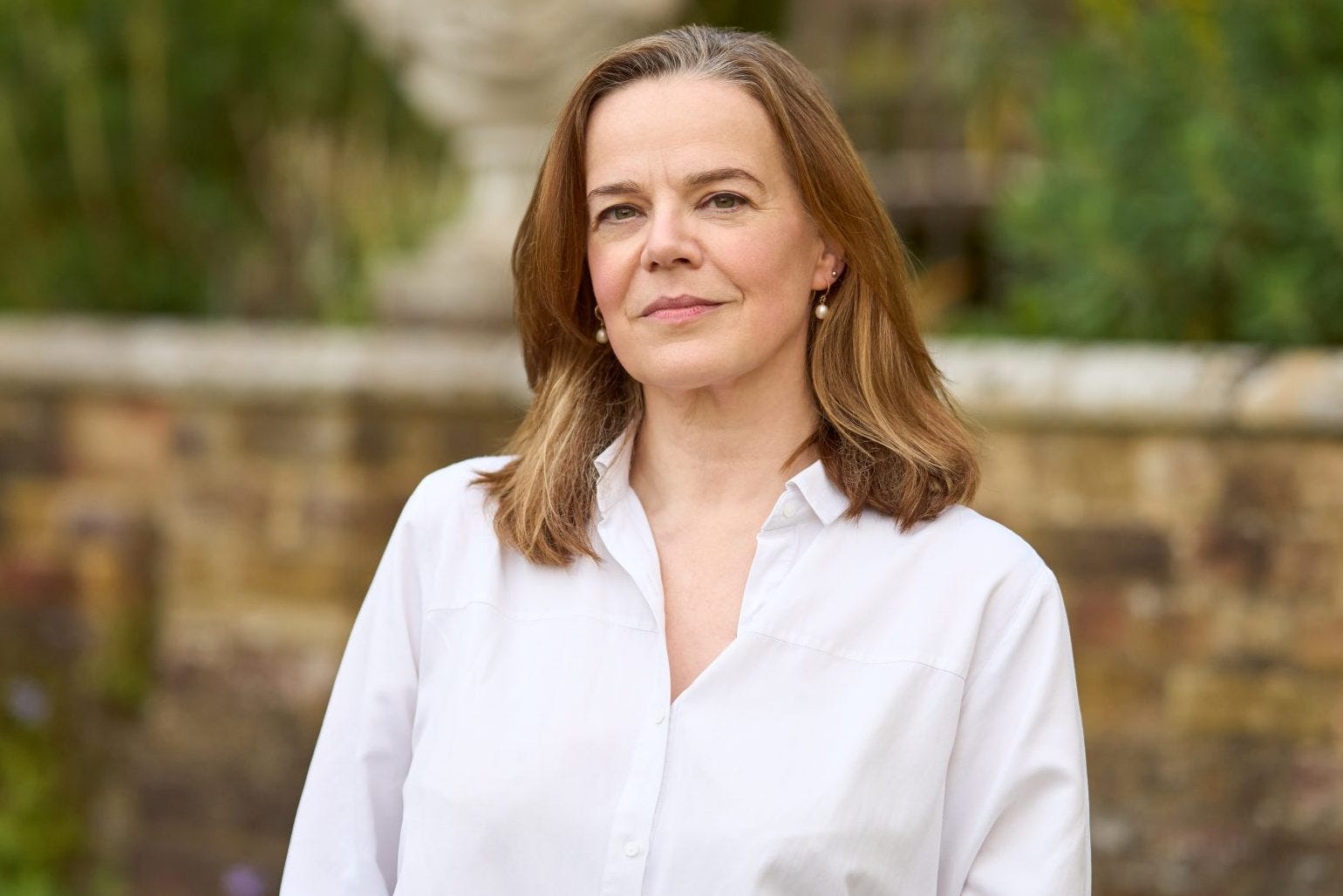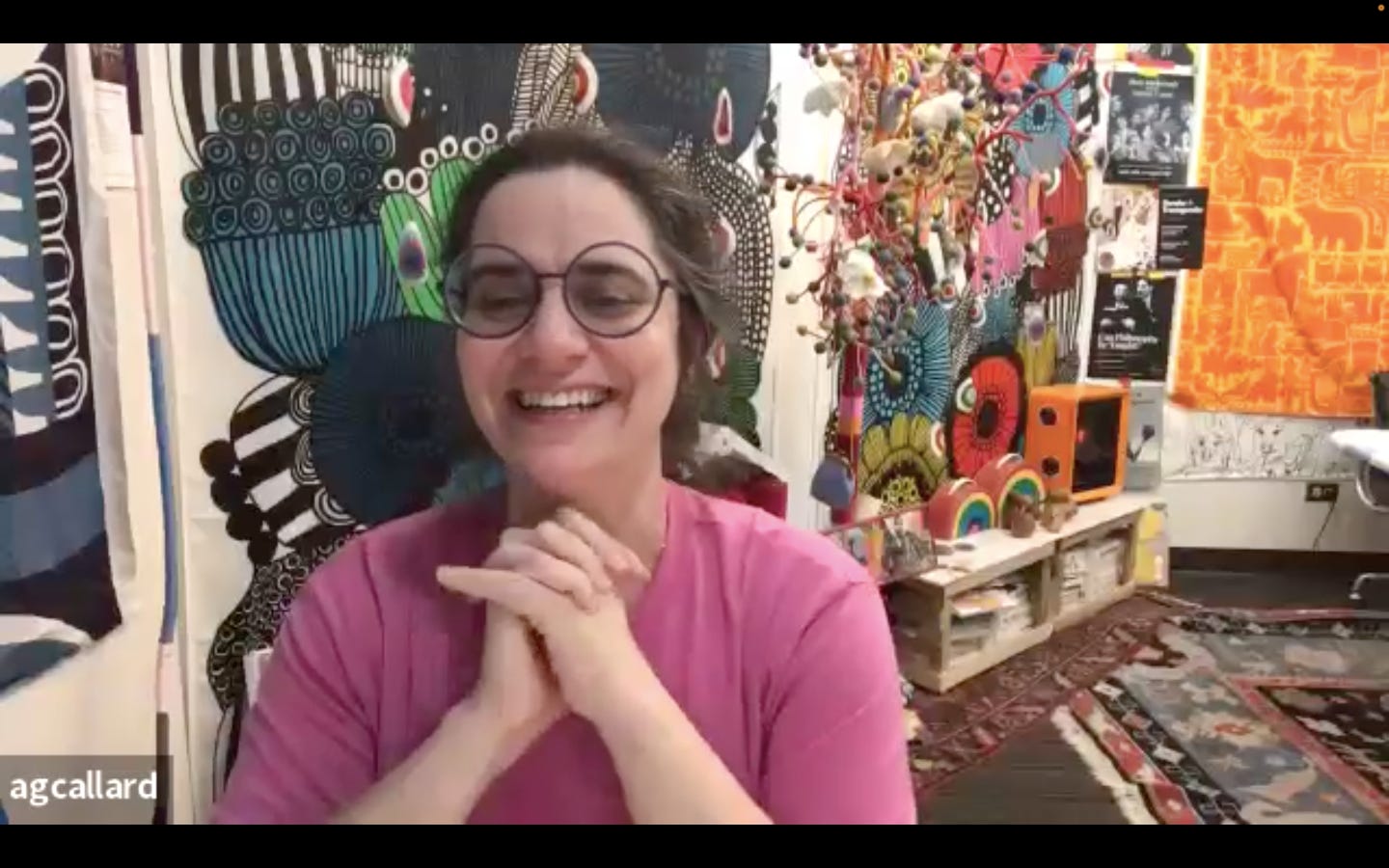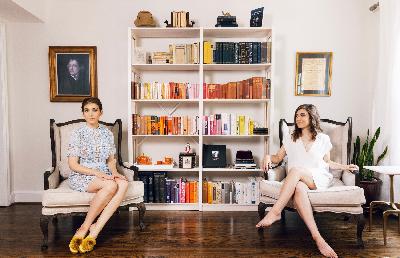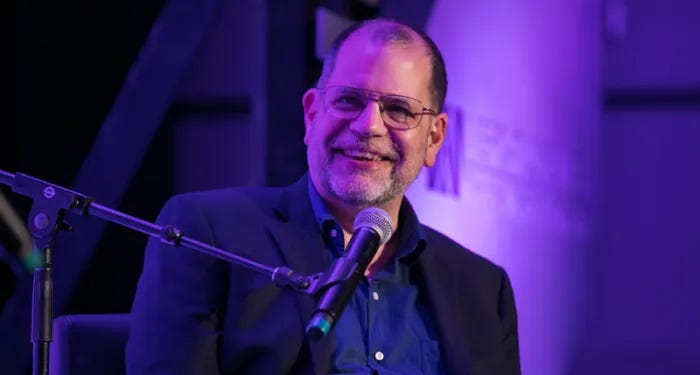Brandon Taylor: I want to bring back all of what a novel can do.
Description
Who else in literature today could be more interesting to interview than Brandon Taylor, the author of Real Life, Filthy Animals, and The Late Americans, as well as the author of popular reviews and the sweater weather Substack? We talked about so much, including: Chopin and who plays him best; why there isn’t more tennis in fiction; writing fiction on a lab bench; being a scientific critic; what he has learned working as a publisher; negative reviews; boring novels; Jane Austen. You’ll also get Brandon’s quick takes on Iris Murdoch, Jonathan Franzen, Lionel Trilling, György Lukács, and a few others; the modern critics he likes reading; and the dead critics he likes reading.
Brandon also talked about how his new novel is going to be different from his previous novels. He told me:
I no longer really want to be starting my books, quote unquote, in media res. I want my books to feel like books. I don’t want my books to feel like movies. And I don't want them to feel like treatments for film. And so I want to sort of bring back all of what a novel can do in terms of its structure and in terms of its form and stuff like that. And so it means starting books, you know, with this sort of Dickensian voice of God speaking from on high, sort of summing up an era. And I think also sort of allowing the narrators in my work to dare to sum up, allowing characters in my work to have ideologies and to argue about those ideologies. I feel like that is a thing that was sort of denuded from the American novel for a lot of millennials and just sort of like trying to put back some of that old fashioned machinery that was like stripped out of the novel. And seeing what of it can still function, seeing, trying to figure out if there's any juice left in these modes of representation.
I have enjoyed Brandon’s fiction (several people I recommend him to have loved Real Life) and I think he’s one of the best critics working today. I was delighted to interview him.
Oh, and he’s a Dickens fan!
Transcript (AI produced, lightly formatted by me)
Henry: Today I am talking to Brandon Taylor, the author of Real Life, Filthy Animals, and The Late Americans. Brandon is also a notable book reviewer and of course he writes a sub stack called Sweater Weather. Brandon, welcome.
Brandon: Yeah, thanks for having me.
Henry: What did you think of the newly discovered Chopin waltz?
Brandon: Um, I thought, I mean, I remember very vividly waking up that day and there being a new waltz, but it was played by Lang Lang, which I did not. I don't know that, like, he's my go-to Chopin interpreter. But I don't know, I was, I was excited by it. Um, I don't know, it was in a world sort of dominated by this ethos of like nothing new under the sun. It felt wonderfully novel. I don't know that it's like one of Chopin's like major, I don't know that it's like major. Um, it's sort of definitively like middle of the road, middle tier Chopin, I think. But I enjoyed it. I played it like 20 times in a row.
Henry: I like those moments because I like, I like it when people get surprised into realizing that like, it's not fixed what we know about the world and you can even actually get new Chopin, right?
Brandon: I mean, it felt a little bit like when Beyonce did her first big surprise drop. It was like new Chopin just dropped. Oh my God. All my sort of classical music nerd group texts were buzzing. It felt like a real moment, actually.
Henry: And I think it gives people a sense of what art was like in the past. You can go, oh my God, new Chopin. Like, yes, those feelings are not just about modern culture, right? That used to happen with like, oh my God, a new Jane Austen book is here.
Brandon: Oh, I know. Well, I mean, I was like reading a lot of Emile Zola up until I guess late last year. And at some point I discovered that he was like an avid amateur photographer. And in like the French Ministry of Culture is like digitized a lot of his glass plate negatives. And one of them is like a picture that Zola has taken of Manet's portrait of him. And it's just like on a floor somewhere. Like he's like sort of taken this like very rickety early camera machinery to this place where this portrait is and like taken a picture of it. It's like, wow. Like you can imagine that like Manet's like, here's this painting I did of you. And Zola's like, ah, yes, I'm going to take a picture to commemorate it. And so I sort of love that.
Henry: What other of his photos do you like?
Brandon: Well, there's one of him on a bike riding toward the camera. That's really delightful to me because it like that impulse is so recognizable to me. There are all these photos that he took of his mistress that were also just like, you can like, there are also photographs of his children and of his family. And again, those feel so like recognizable to me. He's not even like a very good photographer. It's just that he was taking pictures of his like daily life, except for his kind of stunt photos where he's riding the bike. And it's like, ah, yes, Zola, he would have been great with an iPhone camera.
Henry: Which pianists do you like for Chopin?
Brandon: Which pianists do I love for Chopin? I like Pollini a lot. Pollini is amazing. Pollini the elder, not Pollini the younger. The younger is not my favorite. And he died recently, Maurizio Pollini. He died very recently. Maybe he's my favorite. I love, I love Horowitz. Horowitz is wonderful at Chopin. But it's obviously it's like not his, you know, you don't sort of go to Horowitz for Chopin, I guess. But I love his Chopin. And sometimes Trifonov. Trifonov has a couple Chopin recordings that I really, really like. I tend not to love Trifonov as much.
Henry: Really?
Brandon: I know it's controversial. It's very controversial. I know. Tell me why. I, I don't know. He's just a bit of a banger to me. Like, like he's sort of, I don't know, his playing is so flashy. And he feels a bit like a, like a, like a keyboard basher to me sometimes.
Henry: But like, do you like his Bach?
Brandon: You know, I haven't done a deep dive. Maybe I should do a sort of more rigorous engagement with Trifonov. But yeah, I don't, he's just not, he doesn't make my heart sing. I think he's very good at Bach.
Henry: What about a Martha Argerich?
Brandon: Oh, I mean, she's incredible. She's incredible. I bought that sort of big orange box out of like all of her, her sort of like masterwork recordings. And she's incredible. She has such feel for Chopin. But she doesn't, I think sometimes people can make Chopin feel a little like, like treacly, like, like a little too sweet. And she has this perfect understanding of his like rhythm and his like inner nuances and like the crispness in his compositions. Like she really pulls all of that out. And I love her. She has such, obviously great dexterity, but like a real sort of exquisite sensitivity to the rhythmic structures of Chopin.
Henry: You listen on CD?
Brandon: No, I listen on vinyl and I listen on streaming, but mostly vinyl. Mostly vinyl? Yeah, mostly vinyl. I know it's very annoying. No, no, no, no, no.
Henry: Which, what are the good speakers?
Brandon: I forget where I bought these speakers from, but I sort of did some Googling during the pandemic of like best speakers to use. I have a U-Turn Audio, U-Turn Orbital record player. And so I was just look

